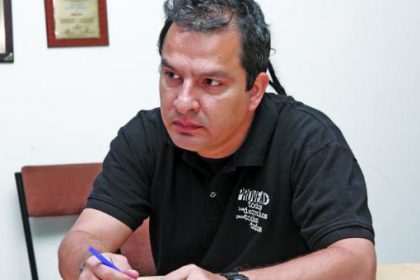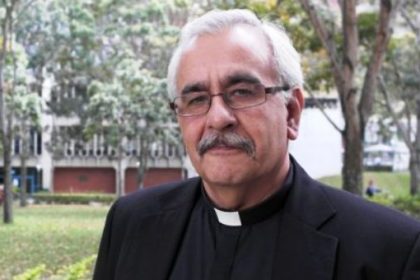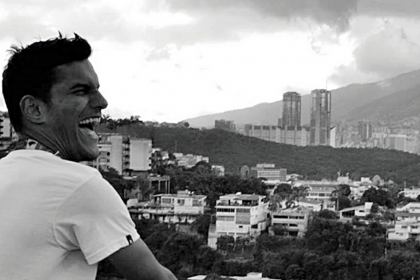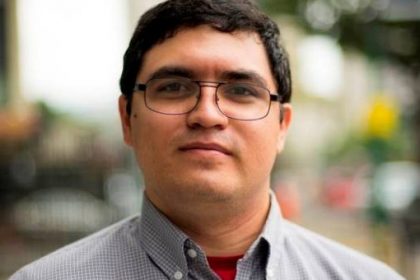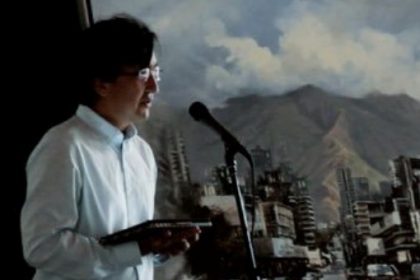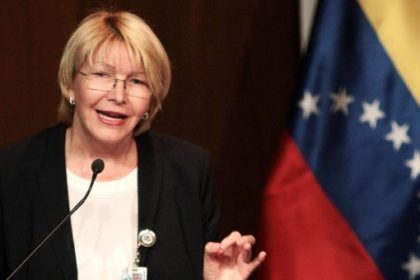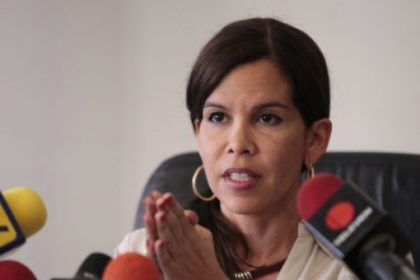Mirla Pérez
@mirlamargarita
For Venezuelans, 2017 meant to see the evident impossibility of socio-political coexistence with a regime that considers the annihilation of the other in order to exist. Dictatorship exists in the historical memory of the people, Gómez and Pérez Jiménez, but also a long democratic experience that leads the experience through a path surprised by the Chavism totalitarian project.
Chavism takes power in democracy. Once the system becomes an impediment to its development, it begins to walk a path that annihilates any project that affects it negatively. Coexistence with the other is impossible in totalitarianism and the people realise this, even before the political leadership itself.
The article I am presenting here is a narrative of the path experienced by the Venezuelan people of recognising such impossibility and its connection with similar experiences from other latitudes such as those that Arendt theorizes, making a differentiation between dictatorship and totalitarianism, which I think it is important to take into account, especially in this moment of our history: “What is decisive in our context is that the totalitarian government is different from dictatorships and tyrannies… because total domination is the only form of government with which coexistence is not possible. In that sense, we have all the possible reasons for scarcely and prudently using the word totalitarian.” (1998, page 18).
The experiences of hunger, disease, exile and the closing of roads -that allow the people to survive- lead the Venezuelan to differentiate dictatorship from totalitarianism, they have run into social control as a daily, real and effective mechanism. Up until now, people had the experience of being able to have a parallel life to what was imposed on them socially, economically or politically. Their encounter with totalitarianism closed that possibility of being and living.
But it also closes the political paths known in democracy. One of them is the recall referendum, but there are no legal arguments that prevent it. The pure arbitrariness of the regime closes the road that represented a window of hope. Totalitarian regimes tend to attack such path because it constitutes one of the genuine impulses against tyranny.
The National Assembly was de facto annulled by means of the sentence number 155 of 28 March 2017, in which all the power is transferred to the National Executive, giving it the capacity to legislate in all matters and ordering him to govern from the State of Exception and Economic Emergency. While the regime sought to radicalise, eliminating any power structure that it could not control, democratic leaders embarked on a political path that represented a point of confluence between their interests and the people’s interests.
The synchrony between the people and political leadership was produced. However, the popular demonstrations exceeded the expectations of the leadership. The march called for 1 September 2016, called the Caracas takeover, surprised in terms of national magnitude and mobilisation. It was a day of bewilderment. The amount of people who took Caracas was unexpected and the opposition political leadership was surprised. This was a demonstration of the people’s radical will to change.
So we began to see that the restoration of democracy was not just a slogan but a constant struggle of the citizen with young parliamentarians who aligned in a state of mind and several street actions with people who had already been mobilised . We have thus, the first two subjects: government and opposition.
The protest from the popular
I will focus, now, on the third subject of this story: the common person, the one who lives in underprivileged communities or urbanisations, people who have been overcome as a result of the destruction of a political, economic and social model. We have already seen their convictions and their actions, let’s see their affective motives. One of the first feelings that appears is the sadness for uprooting: “I’m very sad because I did not think that a family like mine would only see each other on Skype.”
The physical separation of the family has been one of the harshest consequences of this regime, but the damage does not stop there; we went from emigration to the failure of the cultural destiny of men and women: “Pain, because I have a daughter who has cancer and sometimes we do not find the medicines for her. I have seven grandchildren who, sometimes, have gone to bed without eating and it is very painful for me…”
Located in our socio-cultural reality, the breakdown of coexistence and the family’s sense of protection imply fundamental ruptures with immediate consequences such as despair and fear, not only for hunger, but for dying of hunger: “Tomorrow, how will I feed my children if I do not have any food?”; “I feel very scared of starving to death…” The totalitarian regime has touched the fundamental fibers of culture. The first popular reaction has not been adaptation but resistance. Will the recognition of these key points be the impulse of an anti-totalitarian policy?
Within the context of these experiences, the protests fit. They had resonance in the population because the everyday life, in its diverse practices, is very affected. It did not only represent a political call, but it connected the political and the social in the same event.
The political participation of the citizens in the parliamentary elections of 2015 was unusual. Because of the reasons already described, a great hope was placed on it. It was still perceived that there was a possibility to choose and elect. The regime did not think that the defeat would be of that magnitude and it surprised an opposition that was overtaken by a triumph that expected to be more modest. Another practice in which we see how people surpassed the expectations of leadership.
In an economic sense, those who have less begin to graze the border of hunger and the middle class break their lifestyle and start having difficulties to solve basic needs. A group is more vulnerable than the other, but all of them are living the consequences of a regime that destroyed the entire productive apparatus with the aim of social control.
The deterioration of coexistence comes to exert a great weight for the different social groups in the country. The exile, the geographical isolation, the economic siege that impedes the solidarity of the culture is placing barriers to that homo convivalis (Moreno, 1993), this threatens the very foundations of culture. Could it be that isolation, individuality and the rupture of coexistence are the best strategies for social control? Are the convivial relationship and hope the foundations to counteract totalitarianism? In 2018, we do not have more starvation thanks to the solidarity of the Venezuelan, but will we be able to turn solidarity into political strength?
“I feel there is no way out”
The two methodological paths that I used in this interpretation are the systematic register of my own experiences in an underprivileged community and a political opinion study made by several researchers in August 2017, in which we searched and found the political perception of the regular Venezuelans: their dreams, their illusions, their hopes and also the basis of their discouragement. In that way, I can approach the source sense, the one that allows finding the breaking points but also the bases of hope.
2016 represented a bit of hope as a consequence of the electoral triumph of the parliamentarians. These new and legitimate political actors had the moral basis and fundamental popular acceptance to undertake a struggle based on democratic principles. Now, the regime was showing, little by little, its dictatorial nature, as I said, and democracy is not a political option for them. They seek to impose themselves by nullifying the powers of the National Assembly.
Next, we will have a deeper look to the way people are narrating the political finding that defines the government as a dictatorship and that, from our interpretation, we can say that it really defines it as a totalitarian dictatorship. In the perception of the people, the democratic paths are closing and María, one of the participants from the study, express it in the following way: “… they sold us a recall referendum. We did everything we could, but the recall referendum was not given.” There is no reason to prevent it, but the pure arbitrariness of the regime.
On the other hand, within Antonieta’s narrative, the totalitarian character of the dictatorship is clear, illustrated in a heartrending way, projected in the social experience and not only as an appreciation of the person who narrates: “…nobody loves them and they are there. I mean, it’s like I have a man who I do not want and he’s there. Why does he have to be there? It’s as if he were raping me, just like that, as if he were raping me… I feel that’s what people feel. I do not love you, why are you there? Kind of like that…”
Rape as the image that defines the dictatorship is too revealing. That sense of submission, of carnal coercion towards a person against will crudely draws all areas of life. The hunger, the disease that has no chance of being cured for lack of medicines, the repression that hurts and kills, torture, “the fear of starving to death…”, are all actions meant in the systematic violation of human rights. The feeling of being forced to get caught by an abuser that is despicable is an expression derived from the popular narrative that shows the nature of the Venezuelan political regime and it fits with the differentiation that Arendt makes between dictatorship and totalitarianism.
The image of rape places us in that totalitarian and repressive nature of the regime, it goes against the democratic institutions but it also goes against the individual. The following narrative shows a community mobilised and informed of the latest protest actions. In face of that, some relatives show disagreement with the decision to participate in the protest. While she reveals the reason at the same time, Carmen tells us that in the following way: “Lots of lessons, especially from the children. They told me: ‘they’re going to kill you, forget about it. Nobody will live with us who are very young, what will happen to our lives if something happens to you…” The people was clear about the risks they were taking. It is known before a monster that cannot demobilise.
The repression, death and threat of the State is in the environment, the children can sense it: “My five-year-old grandson was the one who told me: ‘oh, do not go there, you are going to be shot…” The State and the police bodies are the subjects of this violent action, neither the community nor children see reasons for these mothers to be repressed. The cruelty in the repression and the experience of death for claiming rights are wide open repressions of the regime.
The community commitment to participate in the demand for a recall referendum or to make the “government” respect the decisions of the National Assembly led the movement to have a cumulative effect on growth. “In my community, there was a lot of support. In this case, they always asked me to go: ‘Are you going to the march?’ They told me the day before, ‘let me know so I can come along.” The experience that is taking place is cornering and not resignation.
“A bit confused, but with a lot of hope”
In the communities there is a decision: to outstep the “government.” The constitutional mechanisms contemplated up until now had not work and that made people relate the political regime with the figure of a rapist. The reaction of the security forces toward the protesters is disproportionate. They march peacefully and they are shot at point-blank range. There are 146 deaths in three months of protest and thousands of detainees for political reasons.
The “government” continues the path of brutally initiated repression in 2014. The way of annihilation of the other becomes its best control policy. The protester is annihilated but the common citizen is also annihilated due to the lack of food or medicine. At this point, we can incorporate our interpretation of Arendt’s analysis (1998, page 368) in “The origins of totalitarianism,” which calls the government as “the manipulators of the system”, let’s see: “…the totalitarian murderers are the most dangerous of all because they do not care whether they themselves are left alive or dead, if they even lived or were never born… The Nazis and the Bolsheviks can be sure of their annihilation factories, which show the fastest solution for the overpopulation problem, for the problem of economically superfluous and socially uprooted human masses. They are both an attraction and a warning.”
There are several elements that help us interpret the nature of evil in our current political system. The 2017 protests accelerate what was already beginning to become evident: the existence of a state apparatus that cannot maintain democratic forms and has to show the repressive face because otherwise it puts its power in check.
Death is not a problem for totalitarianism, they exhibit the high numbers, the Soviets have more than 40 million dead, the Chinese 65 million, North Korea 2 million dead, and so on. They declare us superfluous, uprooted, dispensable when it comes to establishing and consolidating the system. They can kill us with hunger, propitiate exile or call us stateless.
It is not about being neither optimistic nor pessimistic but to draw a comprehensive line that allows us to advance in the field of freedom. Here, the hope is based on the experience of having lived in democracy, this is important when trying to dominate: “I have the hope that the country will improve, that all of this will change…”
Always valuing these feelings very present in people, José raises them for us in the following manner: “I am angry and I feel this way because we have many years going through this problem and we have left the soles of our shoes on those highways, even our hopes, everything everything, everything. Everything. We have lost family. In this moment I feel like that there is no way out, really. Because, I mean, we have done everything, we have fought… I feel enraged, a lot of anger because of the day that these people got into that shitty constituent… ”
There is hope when the feeling that predominates in the people is anger, discontent, the impulse to seek change, rebellion, longing for coexistence based on Venezuelan popular solidarity. While those feelings are there, we can say that totalitarianism has not defeated us. We are still on the path of hope.



